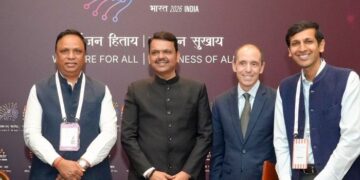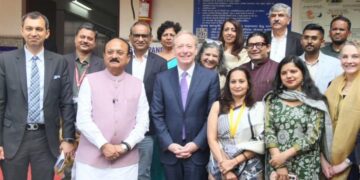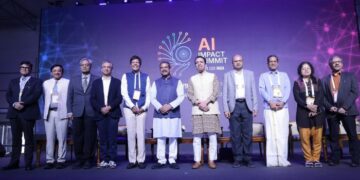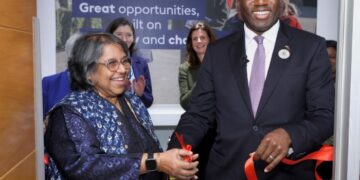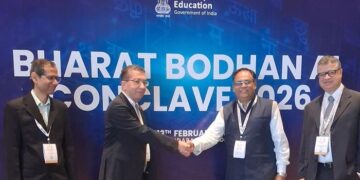The UNESCO Chair on Inclusive Museums and Sustainable Heritage Development is the first on Museums in the Asia Pacific region and has been set up in in the International Centre for Inclusive Cultural Leadership at Anant National University (AnantU) Ahmedabad. It is second worldwide after Sorbonne Nouvelle in Paris. Serving as a think tank and bridge-builder between academia, civil society, local communities, research, and policy-making this Chair will promote and support the development of museum policies in the region.
Designed to promote excellence and innovation, the Chair will establish new modes and modalities of locating culture in sustainable development. AnantU through this facility will provide critical direction to Sustainable Development Goals (SDG) with a focus on the built environment and inclusive design. Moreover, it will establish a nexus of collaborations that will benefit institutions across the Asia Pacific region.
Launched by UNESCO in 1992, with a vision to promote international cooperation and networking between universities and research institutions, the UNESCO Chairs Programme inducted the UNESCO Chair on Inclusive Museums and Sustainable Heritage Development 2021.
Serving as an accredited facilitator of UNESCO, being inducted in the UNESCO Chairs Programme enables knowledge-sharing on a range of diverse themes. Facilitating UN SDGs, the chair will help build capacities and capabilities in the development of UNESCO and UN Standard Settings. Additionally, this will allow them to advocate the UN Agenda 2030 and the United Nations World Tourism Organization (UNWTO) focus on responsible heritage tourism and post pandemic poverty alleviation.
Commenting on the induction as the UNESCO Chair, Prof. Amareswar Galla, UNESCO Chair said, “It is a matter of great pleasure and pride at being inscribed in the UNESCO UNITWIN Network. We look forward to establishing global partnerships and collaborations around the 2030 Agenda for Sustainable Development, and contribute significantly to UNESCO’s priority areas on Education, Natural and Social Sciences, Culture and Communication. We aim to provide the cultural leadership that is much needed in the region for addressing the paradigm shift from conventional museology to a global centre for excellence and knowledge generation for museums.”


